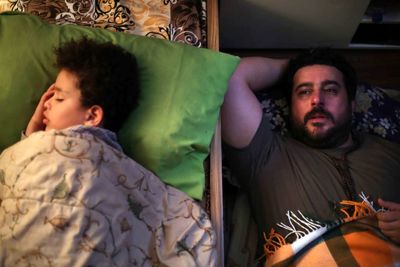The movie was screened at the 43rd Sao Paulo International Film Festival in Brazil during October and November, and was acclaimed by filmgoers, producer Morteza Shayesteh said in a press release published on Tuesday.
Following the screening, the company announced its readiness to sponsor the movie, and it is now known as a co-production between Iran and Austria, he added.
Directed by Behrang Dezfulizadeh, “No Sound”, also known as “Silence, the Cochlea” and “Soundless”, a mother, who is hard of hearing, has separated from her deaf husband because of their disagreement over their son’s cochlear implant surgery that can enable the young child to hear. But the father tries to prevent the surgery because he wants his son to remain deaf like him.
Starring Hanieh Tavassoli and Mohsen Kiai, the film was produced in 2019 with support from Alltone Shenava, an Iranian company that provides implantable hearing systems.
“No Sound” had its Iranian premiere at the 38th Fajr Film Festival in Tehran during February.
During a press conference organized during the festival, Dezfulizadeh said he is seeking once again to bring hearing impaired people under the spotlight by this film.
Based on an official figure published in 2019, about 250,000 persons are hard of hearing or are functionally deaf in Iran.
“The deaf are only being regarded during one week of the year that is dedicated to hearing-impaired people. With this film, I want to raise people’s understanding of the deaf,” he said.
“Assembling an all-star cast could help us in this way,” noted Dezfulizadeh, whose film competed in New Look, the festival’s section dedicated to directorial debut feature-films.
Dezfulizadeh denied the remarks of those accusing him of advertising cochlear implants in the country by his film and said, “Cochlear implant technology entered Iran in 1992. It is part of the story in the film and many hearing-impaired people want to undergo the operation.”
Tavassoli and some members of the cast were compelled to learn sign language for their parts in “No Sound”.
Source: Tehran Times

